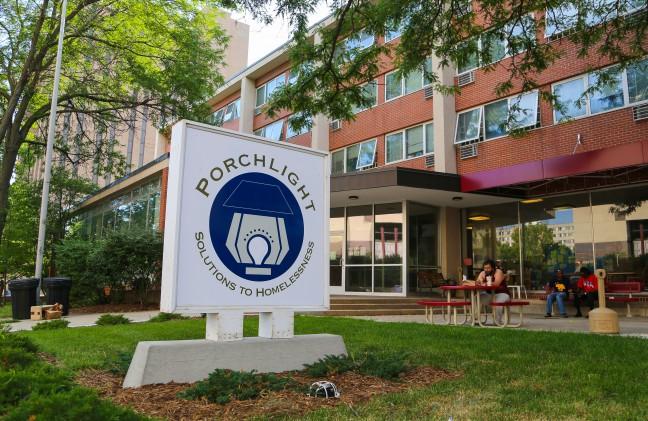Amidst the COVID-19 pandemic, Dane County secures dozens of hotel rooms to provide spaces for individuals experiencing homelessness to practice safe social distancing.
In March, the Dane County Executive’s Office announced in a press release the county’s partnership with local hotels and nonprofits to book hotel rooms for homeless individuals. Dane County Executive Joe Parisi said the county took these steps to ensure the vulnerable homeless population could follow social distancing policies to slow the spread of COVID-19.
“One of our best kinds of weapons we have against COVID-19 right now is the concept of social distancing,” Parisi said. “When we look at places where people congregate and are close together, and particularly places where people don’t have options and people are in a vulnerable situation, that’s where we feel we need to focus.”
Porchlight Inc. is one of many nonprofit shelters working with the county to provide safe social distancing resources to the homeless population. Individuals and families experiencing homelessness are considerably more vulnerable to COVID-19 due to their inability to shelter in place, Director of Services Kim Sutter said in an email to the Badger Herald.
While some members of the homeless community may have places they could stay, Sutter explained that those accommodations are most likely short term and may not be sustainable for the entirety of the pandemic’s predicted time frame. Given the lack of options beyond shelter spaces, Sutter said an individual in a daytime and nighttime shelter can come in close contact with over 100 different people on a daily basis.
“Guidelines, like Safer at Home, are incredibly useful for people who have homes in which to isolate because it limits the number of outside contacts,” Sutter said. “It is much more difficult for community members experiencing homelessness to limit their contacts when they have to move around each day and night.”
Parisi said the county is working on a shelter by shelter basis to examine where to place families and individuals. The county secured 106 rooms so far and is working on securing more rooms with different hotel partners and shelters, Parisi said.
As of now, the county moved most families into hotel rooms, freeing up space in shelters such as Porchlight and the Salvation Army to spread people out, Parisi said. The ultimate goal is to reduce the number of people in each space, according to Parisi.
“We are identifying single individuals that have the highest risk factors should they come down with COVID-19, and we are moving them into hotel rooms,” Parisi said. “Not only to get them the rooms they need and the separation from the crowds, but that will also free up more space in the sheltering system for people to spread farther apart.”
Parisi said this is key in freeing up space in the shelters during the daytime as well. The Beacon, a day shelter in Dane County, provides a space for many individuals during the day. With families in hotel rooms, Parisi said it provides a space for them to stay for the day and night, allowing more space to spread out individuals.
Homeless services providers across the Dane County consortium are working diligently to promote all possible social distancing measures in their spaces, according to Sutter. Porchlight opened a temporary men’s shelter at Warner Park Community Recreation Center in late March, and like many other shelters, Sutter said Porchlight is trying to combat capacity issues through county-wide collaboration.
“We have all seen guidelines and recommendations change rapidly during this pandemic,” Sutter said. “Local leaders, homeless services agencies and community members will need to continue to collaborate to provide dynamic solutions as this virus spreads. Complacency is not an option right now.”
In addition to addressing shelter capacity issues, Sutter said another key initiative in place involves screening individuals who enter shelters. If the individual presents COVID-19 symptoms, the shelters can isolate at-risk individuals by sending them to hotels or hospitals, respectively, depending on the severity of symptoms, Sutter said.
While moving people into secure hotels is the first step in the county’s triage, Parisi said Dane County is partnering with City of Madison officials to identify additional spaces available to house homeless individuals and to continue spreading individuals out as much as possible. Services beyond food and shelter are also in the works to ensure a variety of resources are available, Parisi said.
“People need a lot of support when they are moved into a hotel space,” Parisi said. “So, there are case management services that need to go along with the rooms and shelters. It is much more than just finding them a place to live … there’s a lot of supportive services to go along with that too.”
Dane County and the City of Madison are also working to expand access to sanitary services for the homeless community by providing hand washing stations in more densely clustered areas where people experiencing homelessness congregate, according to Parisi.
Despite the challenging circumstances, Parisi said the community will take on this challenge week by week to ensure the safety of every individual.
“I could not be more proud of our community,” Parisi said. “There are so many layers of support coming together, and this is something our community should really be proud of. There are a lot of heroes out there doing work on the front lines.”


